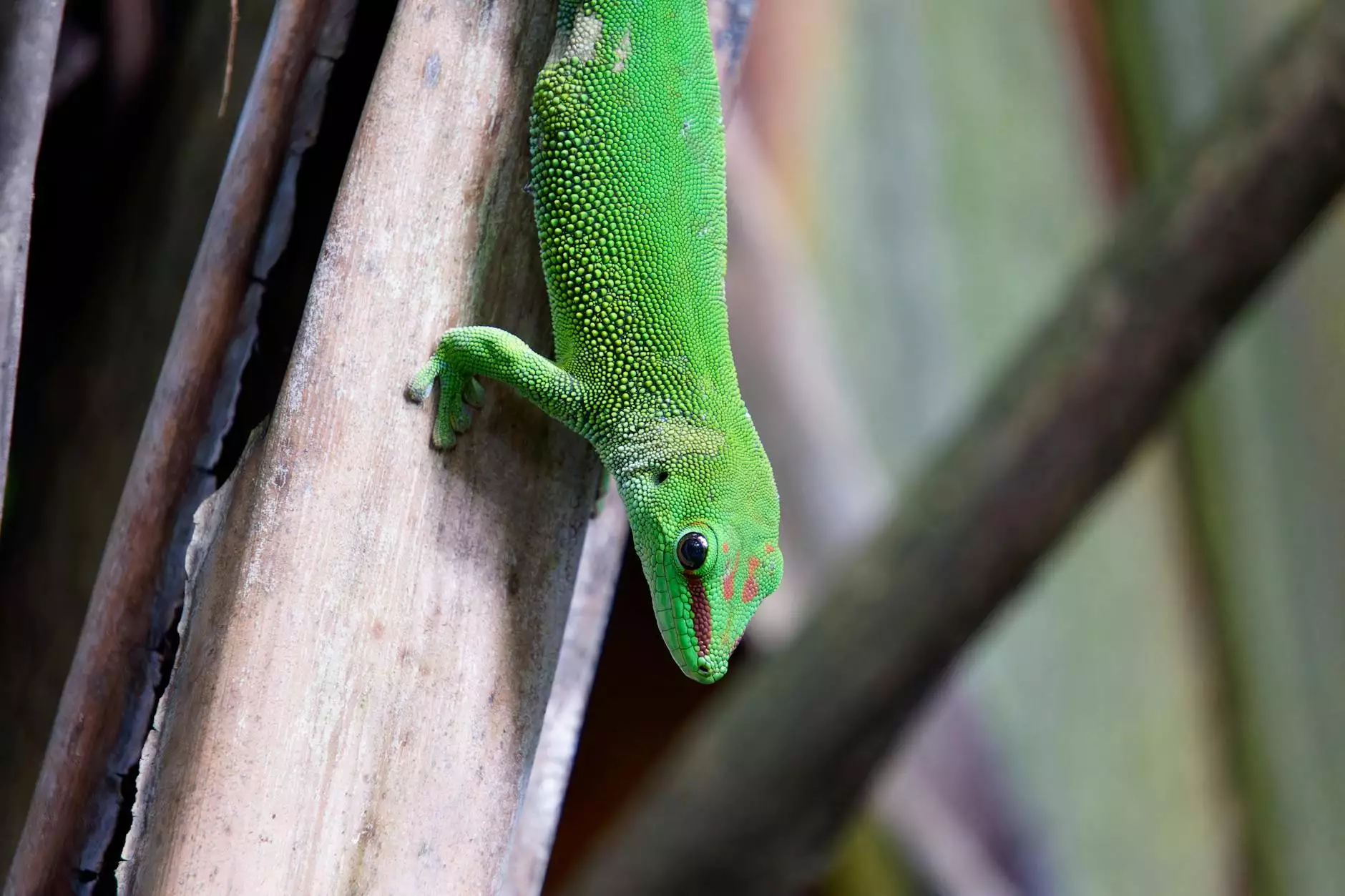Understanding Gecko Breeders: The Art and Science of Breeding Exotic Pets

In the ever-evolving landscape of pet ownership, gecko breeders have carved a remarkable niche that appeals to reptile enthusiasts and casual pet owners alike. This comprehensive article explores the intricate world of gecko breeding, delving into the techniques used, the responsibilities involved, and the passion that drives these breeders to excel. Whether you're a potential owner or simply curious about this captivating hobby, read on to gain valuable insights.
What Are Geckos and Why Are They Popular Pets?
Geckos are a diverse family of lizards known for their unique features, including vibrant colors, distinctive patterns, and charming personality traits. Among the most popular species within the gecko family are:
- Leopard Gecko
- Crested Gecko
- Tokay Gecko
- Morning Gecko
These reptiles are favored by many for various reasons, including:
- Low Maintenance: Compared to traditional pets, geckos require less daily care, making them ideal for busy individuals.
- Unique Appearance: Their captivating patterns and colors appeal to collectors and casual pet owners alike.
- Quiet Companions: Unlike cats or dogs, geckos do not make noise, creating a peaceful environment.
- Educational Value: Owning a gecko can teach valuable lessons about biology, responsibility, and the environment.
The Role of Gecko Breeders in Reptile Enthusiast Culture
Gecko breeders serve as the backbone of the reptile pet industry. Their contributions extend beyond simply providing pets; they play crucial roles in:
1. Conservation Efforts
Many gecko breeders focus on breeding sustainable populations of various species that may be threatened in the wild. By producing healthy offspring, breeders help reduce the demand for wild-caught geckos, which can often lead to habitat destruction and population decline.
2. Ensuring Genetic Diversity
Good breeding practices aim to maintain genetic diversity within captive populations. This is essential for the health of the species and helps prevent genetic disorders commonly associated with inbreeding.
3. Educating the Community
Gecko breeders often share their knowledge with prospective owners, ensuring that new pet owners understand the care required for their pets. This education encompasses habitat setup, feeding, and health monitoring.
The Art of Breeding Geckos
Breeding geckos is both an art and a science, requiring extensive knowledge, patience, and a genuine passion for herpetology. The following aspects are crucial for successful gecko breeding:
1. Selecting Breeding Stock
Successful breeding starts with choosing healthy and genetically diverse breeding stock. Factors to consider include:
- Health: Both the male and female should be free from diseases and parasites.
- Genetics: Understanding the genetic background helps in avoiding inbreeding and promotes desirable traits.
- Temperament: Selecting geckos with a calm and friendly demeanor can lead to a more manageable breeding process.
2. Creating the Ideal Environment
Gecko breeding requires a well-maintained environment that mimics their natural habitat. Important factors include:
- Temperature: Different species have specific temperature requirements. A temperature gradient should be established to allow the geckos to thermoregulate properly.
- Humidity: Maintaining the right humidity levels is vital for health and successful breeding.
- Hiding Spots: Providing shelters and hiding spots helps reduce stress and encourages natural behaviors.
3. The Breeding Process
The mating process involves several stages:
- Introducing the Breeders: Monitor their interactions closely to ensure compatibility.
- Gestation: After copulation, females may lay eggs or bear live young, depending on the species.
- Incubation: Eggs require specific conditions to develop properly; this involves controlling temperature and humidity.
Health Considerations and Best Practices for Gecko Breeders
Maintaining the health of both breeding stock and offspring is paramount for all gecko breeders. Follow these best practices:
1. Regular Health Checks
Routine veterinary check-ups can help catch issues before they become serious. Look for signs of common reptiles' ailments, such as:
- Respiratory Infections
- Skin Shedding Problems
- Parasitic Infections
2. Nutrition
A balanced diet is essential for breeding geckos. Considerations include:
- Variety: Offer a mix of live insects, fruits, and commercial diets tailored for geckos.
- Calcium and Vitamins: Supplement their diet with calcium and vitamins to ensure optimal health.
3. Stress Reduction
Breeding can be stressful for geckos. To mitigate this:
- Avoid unnecessary handling during the breeding and egg-laying process.
- Provide a calm and quiet environment to help the geckos feel safe.
Finding Reputable Gecko Breeders
When looking to purchase a gecko, it’s important to choose reputable breeders. Here are some tips for finding trustworthy sources:
1. Research
Online reviews, breeder associations, and community recommendations can provide insight into a breeder's reputation. Look for:
- Reviews on platforms like Facebook, Instagram, and reptile forums.
- Participation in gecko breeding associations or local reptile shows.
2. Ask Questions
A good breeder should be willing to answer your questions regarding:
- Breeding practices and history.
- The health and temperament of their geckos.
- After-sales support and feeding guidelines.
Conclusion: The Future of Gecko Breeding
As the popularity of exotic pets continues to grow, the role of gecko breeders will only become more significant. By adhering to ethical breeding practices, focusing on conservation, and educating the public, these breeders are shaping a sustainable future for the reptile trade. Whether you're considering getting a gecko as a pet or looking to dive into the world of breeding, understanding the nuances of this practice is essential for success. With dedication, passion, and knowledge, anyone can enjoy the rewarding experience of gecko ownership and breeding.
For more information on exotic pet breeding and responsible ownership, visit eu-exoticreptiles.com.



